Related Research Articles

Alternate history is a subgenre of speculative fiction in which one or more historical events have occurred but are resolved differently than in actual history. As conjecture based upon historical fact, alternate history stories propose What if? scenarios about crucial events in human history, and present outcomes very different from the historical record. Some alternate histories are considered a subgenre of science fiction, or historical fiction.

The Man in the High Castle is an alternative history novel by Philip K. Dick, first published in 1962, which imagines a world in which the Axis Powers won World War II. The story occurs in 1962, fifteen years after the end of the war in 1947, and depicts the life of several characters living under Imperial Japan or Nazi Germany as they rule a partitioned United States. The eponymous character is the mysterious author of a novel-within-the-novel entitled The Grasshopper Lies Heavy, a subversive alternative history of the war in which the Allied Powers are victorious.
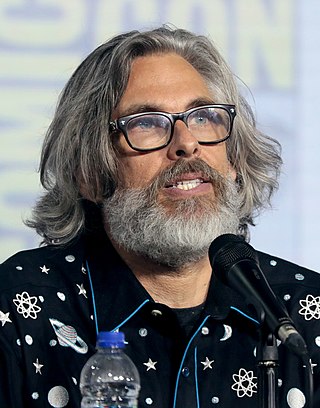
Michael Chabon is an American novelist, screenwriter, columnist, and short story writer. Born in Washington, D.C., he spent a year studying at Carnegie Mellon University before transferring to the University of Pittsburgh, graduating in 1984. He subsequently received a Master of Fine Arts in creative writing from the University of California, Irvine.

The future is the time after the past and present. Its arrival is considered inevitable due to the existence of time and the laws of physics. Due to the apparent nature of reality and the unavoidability of the future, everything that currently exists and will exist can be categorized as either permanent, meaning that it will exist forever, or temporary, meaning that it will end. In the Occidental view, which uses a linear conception of time, the future is the portion of the projected timeline that is anticipated to occur. In special relativity, the future is considered absolute future, or the future light cone.
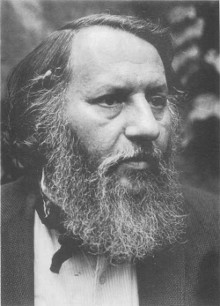
Avram Davidson was an American writer of fantasy fiction, science fiction, and crime fiction, as well as the author of many stories that do not fit into a genre niche. He won a Hugo Award and three World Fantasy Awards in the science fiction and fantasy genre, a World Fantasy Life Achievement award, and an Ellery Queen's Mystery Magazine short story award and an Edgar Award in the mystery genre. Davidson edited The Magazine of Fantasy and Science Fiction from 1962 to 1964. His last novel The Boss in the Wall: A Treatise on the House Devil was completed by Grania Davis and was a Nebula Award finalist in 1998. The Encyclopedia of Science Fiction says "he is perhaps sf's most explicitly literary author".
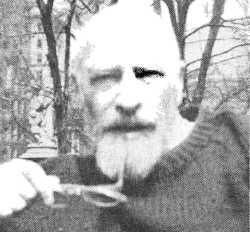
Joseph Ward Moore was an American science fiction writer. According to The Encyclopedia of Science Fiction, "he contributed only infrequently to the field, [but] each of his books became something of a classic."

Uchronia is currently an English word-in-formation, a neologism, that is sometimes used in its original meaning as a straightforward synonym for alternate history, a genre of speculative fiction that reimagines historical events going in new, imaginary directions. However, it has also begun to refer to other related concepts.
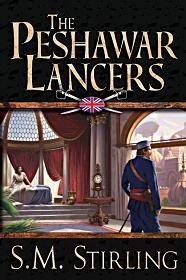
The Peshawar Lancers is an alternate history, steampunk, post-apocalyptic fiction adventure novel by S. M. Stirling, with its point of divergence occurring in 1878 when the Earth is struck by a devastating meteor shower. The novel's plot takes place in 2025, when the British Empire has become the powerful Angrezi Raj and is gradually recolonizing the world, alongside other nations and empires that were able to survive. The novel was published in 2002, and was a Sidewise Award nominee for best long-form alternate history.
The timestream or time stream is a metaphorical conception of time as a stream, a flowing body of water. In Brave New Words: The Oxford Dictionary of Science Fiction, the term is more narrowly defined as: "the series of all events from past to future, especially when conceived of as one of many such series". Timestream is the normal passage or flow of time and its historical developments, within a given dimension of reality. The concept of the time stream, and the ability to travel within and around it, are the fundamentals of a genre of science fiction.
Bring the Jubilee is a 1953 alternate history novel by American writer Ward Moore.
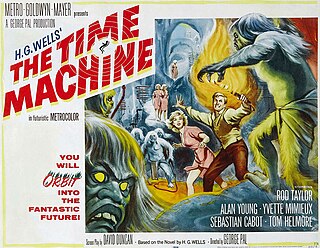
Time travel is a common theme in fiction, mainly since the late 19th century, and has been depicted in a variety of media, such as literature, television, film, and advertisements.

Jess Nevins is an American author and research librarian best known for annotated guides and encyclopedias covering Victoriana, comic books, genre fiction and pulp fiction. Among Nevin's books are Encyclopedia of Fantastic Victoriana,Horror Fiction in the 20th Century and Encyclopedia of Golden Age Superheroes. He has been a recipient and finalist for a number of honors, including the World Fantasy, Sidewise, and Locus Awards.

If It Had Happened Otherwise is a 1931 collection of essays edited by J. C. Squire and published by Longmans, Green. Each essay in the collection could be considered alternate history or counterfactual history, a few written by leading historians of the period and one by Winston Churchill.
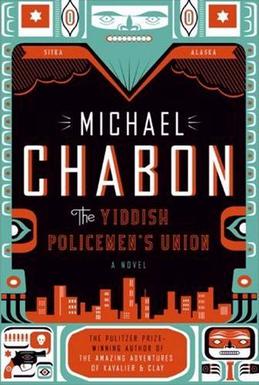
The Yiddish Policemen's Union is a 2007 novel by American author Michael Chabon. The novel is a detective story set in an alternative history version of the present day, based on the premise that during World War II, a temporary settlement for Jewish refugees was established in Sitka, Alaska, in 1941, and that the fledgling State of Israel was destroyed in 1948. The novel is set in Sitka, which it depicts as a large, Yiddish-speaking metropolis.

In the Courts of the Crimson Kings is a 2008 alternate history science fiction novel by American writer S. M. Stirling.
"Alien space bats" ("ASBs") is a neologism for plot devices used in alternate history to mean an implausible point of divergence.

Marjorie M. Liu is an American New York Times best-selling author and comic book writer. She is acclaimed for her horror fantasy comic Monstress, and her paranormal romance and urban fantasy novels including The Hunter Kiss and Tiger Eye series. Her work for Marvel Comics includes NYX, X-23, Dark Wolverine, and Astonishing X-Men. In 2015 Image Comics debuted her creator-owned series Monstress, for which she was nominated for an Eisner Award for Best New Series. In 2017 she won a Hugo Award for the first Monstress trade paperback collection. In July 2018 she became the first woman in the 30-year history of the Eisner Awards to win the Eisner Award for Best Writer for her work on Monstress.
American Civil War alternate histories are alternate history fiction that focuses on the Civil War ending differently or not occurring. The American Civil War is a popular point of divergence in English-language alternate history fiction. The most common variants detail the victory and survival of the Confederate States. Less common variants include a Union victory under different circumstances from actual history, resulting in a different postwar situation; black American slaves freeing themselves by revolt without waiting for Lincoln's Emancipation Proclamation; a direct British and/or French intervention in the war; the survival of Lincoln during John Wilkes Booth's assassination attempt; a retelling of historical events with fantasy elements inserted; the Civil War never breaking out and a peaceful compromise being reached; and secret history tales. The point of divergence in such a story can be a "natural, realistic" event, such as one general making a different decision, or one sentry detecting an enemy invasion unlike in reality. It can also be an "unnatural" fantasy/science fiction plot device such as time travel, which usually takes the form of someone bringing modern weapons or hindsight knowledge into the past. Still another related variant is a scenario of a Civil War that breaks out at a different time from 1861 and under different circumstances.
This is the complete list of works by American science fiction author S. M. Stirling.

Karen L. Hellekson is an American author and scholar who researches science fiction and fan studies. In the field of science fiction, she is known for her research on the alternate history genre, the topic of her 2001 book, The Alternate History: Refiguring Historical Time, and has also published on the author Cordwainer Smith. In fan studies, she is known for her work on fan fiction and the culture of the fan community. She has co-edited two essay collections on fan fiction with Kristina Busse, and in 2008, co-founded the academic journal, Transformative Works and Cultures, also with Busse.
References
- ↑ Langford, David (August 21, 2012). "Jonbar Point". The Encyclopedia of Science Fiction . London: Gollancz.
- ↑ Evelyn C. Leeper and Mark R. Leeper (1993). "ConFrancisco 1993" . Retrieved 7 December 2008.
- ↑ "The weak things of the world shall confound the mighty". MetaFilter. March 8, 2008. Retrieved 6 December 2008.
- ↑ Pauline Morgan (November 28, 2005). "Century Rain by Alastair Reynolds". Archived from the original on May 16, 2008. Retrieved 6 December 2008.
- ↑ Paul Di Filippo (March 17, 2008). "Review:In the Courts of the Crimson Kings". Sci Fi Weekly. Archived from the original on 21 June 2008. Retrieved 6 December 2008.
- ↑ John Joseph Adams (March 5, 2008). "Yiddish Inspired By Phrasebook". Archived from the original on March 6, 2008. Retrieved 31 July 2014.
- ↑ Webb, Don. "Book Review: Ward Moore's 'Bring the Jubilee'". www.bewilderingstories.com. Retrieved 4 July 2017.
- ↑ Clyde Lewis. "The Martian Chronicle for the 21st Century Apocalypse". Ground Zero. Archived from the original on 7 January 2009. Retrieved 7 December 2008.